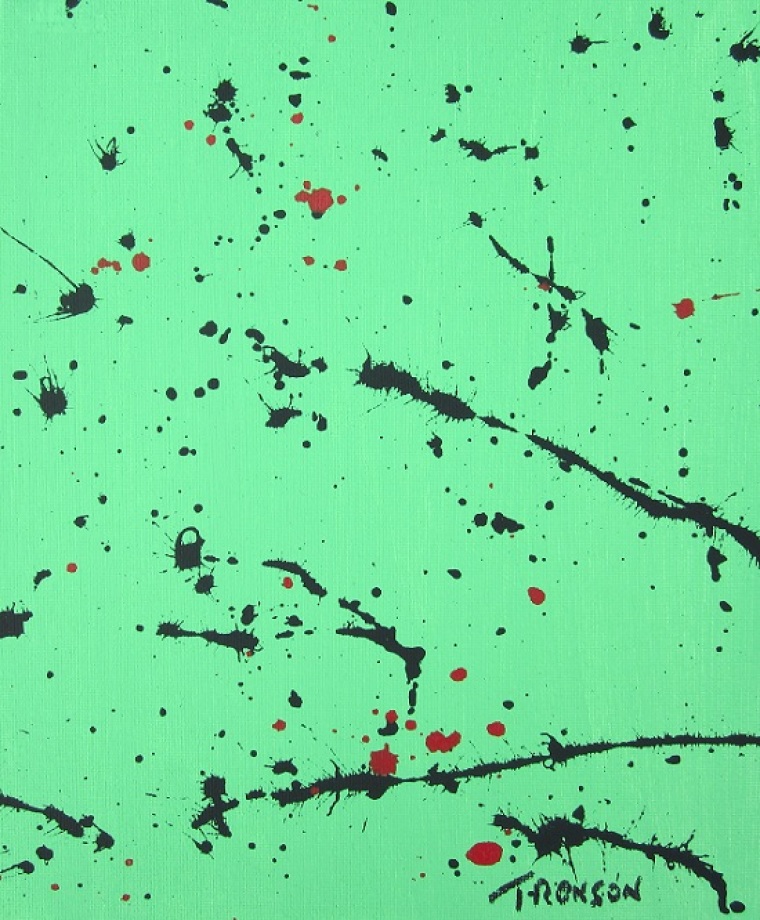

An awful lot when you think about it! When a baby is born, friends and family all want to know what the child will be called. Without a name, the little mite doesn't seem to quite have his or her own identity.
And the name chosen often has some significance – it may be given a family name, or be called after a close friend. (My husband's second name is James; after a younger sibling of his father who died shortly after birth.) Or sometimes the name has some special meaning for the new parents – or it may be that they just happened to like it. Usually a lot of care and thought goes into choosing the name.
In Biblical times, names may have indicated something of the character of a person. Later, a person's name may have been changed at baptism, to signify the beginning of a changed way of life. Jesus said to Simon, that he would be called Peter, "because on this rock (petra) I will build my church." Forever after Peter's name would be a reminder of who had called him and what his purpose in life was all about.
Naming is a human tendency
We name our pets too. They become part of the family. They are not just No 458, according to the ear tag on a particular cow in a herd, who liked to walk through our camp fire each morning, and lick the cold ashes, before we had emerged from our tent one summer holiday.( No 458 almost did become a name; but it didn't seem quite personal enough at the time.)
Children too name their dolls and toys. Some people give their cars names; the older ones with character. (One friend of mine labelled her car, Stanley Ichabod – the Stanley was the type, and the Ichabod – well, that means 'the glory has departed.')
Ships are named, and referred to as 'she.' Houses and properties may have names. Animals, birds, geographical features – towns, villages, cities, suburbs, etc are all named. (Was it only the Americans who labelled streets by numbers – Fourth Street, Eight Street, etc – I'm sure I'm not the only one who has great difficulty distinguishing them from each other...)
Why give names?
So what's the big deal about giving games? It is part of being human – we want to personalise and name things, be they creatures or something we've created. In giving aname, we thereby impart a special identity and significance.
Calling someone 'names'
Naming can be negative though. You may remember the old childhood ditty, spoken in defiant retaliation, when some bully hurls a nasty name at their victim: 'Sticks and stones will break my bones, but names will never hurt me." It's not true of course – those names do hurt, and can have a long-lasting impact if there is prolonged abuse of a hapless child.
But even labelling someone with a negative appellation is part of being human – the wilful side of us that can take perverse delight in the humiliation of someone else. And it's not only found in the playground; one of the ways in which soldiers can be trained to fight is if their enemy is depersonalised and called names. (Think of the Hun in WW1, the 'Gook' in Vietnam, and the 'locust' in the Rwandan conflict.)
Numbers instead of names?
If naming is an essential part of being human, it is continually being undermined by an opposite tendency gaining increasing traction in the western world. As human beings are being increasingly depersonalised, and reduced to a 'collocation of atoms' (Bertrand Russell) or a 'pack of neurons', we are becoming less human.
If the 'I' that is me, is considered to be no more than the sum of the electrical impulses occurring in my brain, then how can I really be a full person, distinct from any other being, human or animal (or even plant) in this world? Why should I even have a name? Won't a number be sufficient? (Remember the victims of the Nazi Holocaust with their numbers inked on their arms.)
I don't decry the use of numbers. For a systematic ordering of tax records, bank accounts and the like, numbers have their place. It is when we are reduced to only a number, or are regarded as nothing more than a number,this is when our depersonalisation becomes apparent.
'Finally, a person...'
In small ways too we lament the depersonalisation of human beings. Large corporations do it. How often have we rung some firm and had to wade through an interminable list of options on the automatic answering machine before finally the recorded voice says, "Please wait while I put you through to someone who can help." "Ah, finally a person," we respond to the unhearing recorded voice. Then we are told our wait time is something like 'Twenty minutes' in a robot's voice. The caller is not regarded as a person, but as simply a task to be attended to by the customer service representative.
Our God calls us by name – not a number
In the Garden, Adam and Eve were both given names, and given the task of naming different parts of the Creation. In John's Gospel we are told by Jesus that he knows each one of us by name, as a shepherd knows his sheep. (Individual sheep in those days were not merely stock units.) And, we are told, that those who follow Jesus have their names (not their numbers) written in the 'Lamb's Book of Life.'

If we matter so much to our God – who calls us by name – then each precious human being also matters to him. Let's do all that we can to resist the tendency to depersonalise, to regard humans as less than human, and to downgrade the wonderful uniqueness of every person that God has created.
Liz Hay is delighted that her name, Elizabeth, means 'gift of God.' She also enjoys God's gift of the peace and beauty of her surroundings in her small mountain village an hour away from Christchurch, NZ. She and Ron, have three adult children, and five grandchildren, and with each of them, their names evoke the uniqueness and personality of special human beings.
Liz Hay's previous articles may be viewed at http://www.pressserviceinternational.org/liz-hay.html